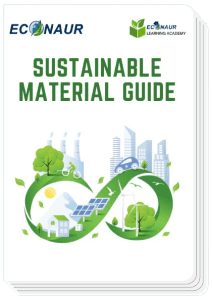Home » Sustainable Insights ( Blogs ) » What exactly Energy audit is and the benefits Involved with it
What exactly Energy audit is and the benefits Involved with it
A Energy Audit for a Building is a service where the energy efficiency of a Building is evaluated by a person using professional equipment (such as blower doors and infrared cameras), with the aim to suggest the best ways to improve energy efficiency in heating and cooling the house.
An energy audit of a home may involve recording various characteristics of the building envelope including the walls, ceilings, floors, doors, windows, and skylights. For each of these components the area and resistance to heat flow (R-value) is measured or estimated. The leakage rate or infiltration of air through the building envelope is of concern, both of which are strongly affected by window construction and quality of door seals such as weather stripping. The goal of this exercise is to quantify the building’s overall thermal performance. The audit may also assess the efficiency, physical condition, and programming of mechanical systems such as the heating, ventilation, air conditioning equipment, and thermostat.
A energy audit may include a written report estimating energy use given local climate criteria, thermostat settings, roof overhang, and solar orientation. This could show energy use for a given time period, say a year, and the impact of any suggested improvements per year. The accuracy of energy estimates are greatly improved when the homeowner’s billing history is available showing the quantities of electricity, natural gas, fuel oil, or other energy sources consumed over a one or two-year period.
Some of the greatest effects on energy use are user behaviour, climate, and age of the Building. An energy audit may therefore include an interview of the Building owner to understand their patterns of use over time. The energy billing history from the local utility company can be calibrated using heating degree day and cooling degree day data obtained from recent, local weather data in combination with the thermal energy model of the building. Advances in computer-based thermal modelling can take into account many variables affecting energy use.
A Energy audit is often used to identify cost effective ways to improve the comfort and efficiency of buildings. In addition, homes may qualify for energy efficiency grants from central government.
Recently, the improvement of smartphone technology has enabled homeowners to perform relatively sophisticated energy audits. This technique has been identified as a method to accelerate energy efficiency improvements.
During an Energy Audit Equipments & instruments that are required are ultrasonic flow meter, anemometers, lux meters, DP manometers, temperature sensors, power analyzer and HOBO loggers to work at multiple sites simultaneously. We perform energy audit services for all types of HVAC systems, chiller plants, boiler plants, steam systems, compressed air pneumatic systems, refrigeration systems, lighting and electrical systems.
An energy audit is recommended to determine the energy consumption associated with a facility and the potential savings associated with that energy consumption.
From a general point of view, an energy audit provides enormous benefits in different areas:
- It helps reduce energy costs in your facility.
- With a reduction in production costs, the competitiveness of your company will be improved.
- It helps reduce the dependence on foreign energy sources.
- It helps reduce environmental damage and pollution.
- It can increase the security of your energy supply.
- It can reduce the consumption of natural resources.
- It can reduce damage to the environment associated with the exploitation of resources.
- It helps reduce the impact of greenhouse gas emissions.
- It helps you to lower energy bills.
- It enables you to increase the comfort of those in the facility.
- It helps you to increase the life span of the equipment in your facility.
- It discovers any unaccounted consumption that may exist at the facility.
- profitability through optimization of energy expenditure
- productivity through optimization of equipment and processes
- performance, thanks to the rationalization of energy use.
SaveSavedRemoved 0







